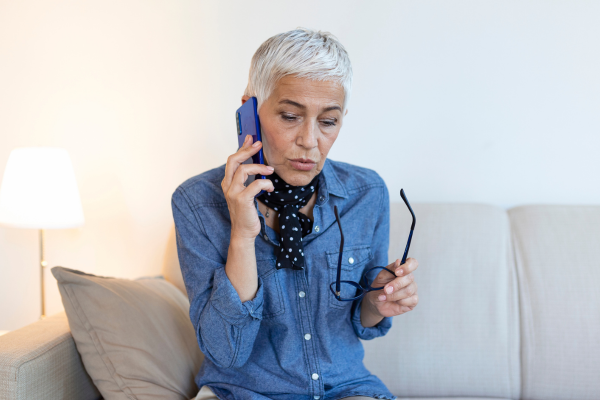It starts with a phone call — and a whole lot of panic.
“Grandma, it’s me. I’m in trouble. I need money fast... but don’t tell Mom and Dad.”
If your heart just skipped a beat reading that, you’re not alone. Scammers know how to pull emotional strings — and one of their favorite cons preys on love, urgency, and the desire to protect family. It’s called the Grandparent Scam, and unfortunately, it’s still catching people off guard in 2025.
Let’s break it down so you can spot it before it ever gets close to your wallet — or your peace of mind.
How the Grandparent Scam Works
Scammers pose as your grandchild (or someone calling on their behalf — like a lawyer, police officer, or doctor). They’ll say something bad happened:
- They were in a car accident
- They’re in jail
- They lost their passport on a trip
- They need bail money or hospital fees right now
They’ll often beg you not to tell anyone and ask you to send money immediately via wire transfer, gift cards, or a peer-to-peer payment app.
They’re counting on you to act fast — and not pause to ask questions.
Red Flags to Watch For
- The caller won’t give specific details or asks you to guess which grandchild is calling
- You’re told not to tell anyone else in the family
- Payment requests are urgent and untraceable — like gift cards or wire transfers
- Caller ID looks legit (but spoofing a number is easy these days)
What to Do Instead
- Take a breath — and take a pause. Scammers want you emotional and flustered.
- Hang up and call your grandchild directly. Even if the voice sounded “just like them,” confirm the story with a call or text.
- Loop in other family members. If someone’s truly in trouble, the family should know.
- Never send money over the phone without verifying the story in person or through a trusted contact.
A Quick Word to Grandparents (and Everyone Else)
Scammers go after people with big hearts — and grandparents tend to top that list. This isn’t about being gullible. It’s about being human. The best thing you can do is talk about these scams openly with your friends and family, so no one feels alone or ashamed if it happens to them.
Stay Alert, Stay Connected
If something doesn’t feel right, trust your instincts. The more you know about how scams work, the less likely they are to succeed.
Because your grandkid? They’re probably fine. And if they ever do end up in a jam… they’ll be just as glad you didn’t fall for the fake version.




